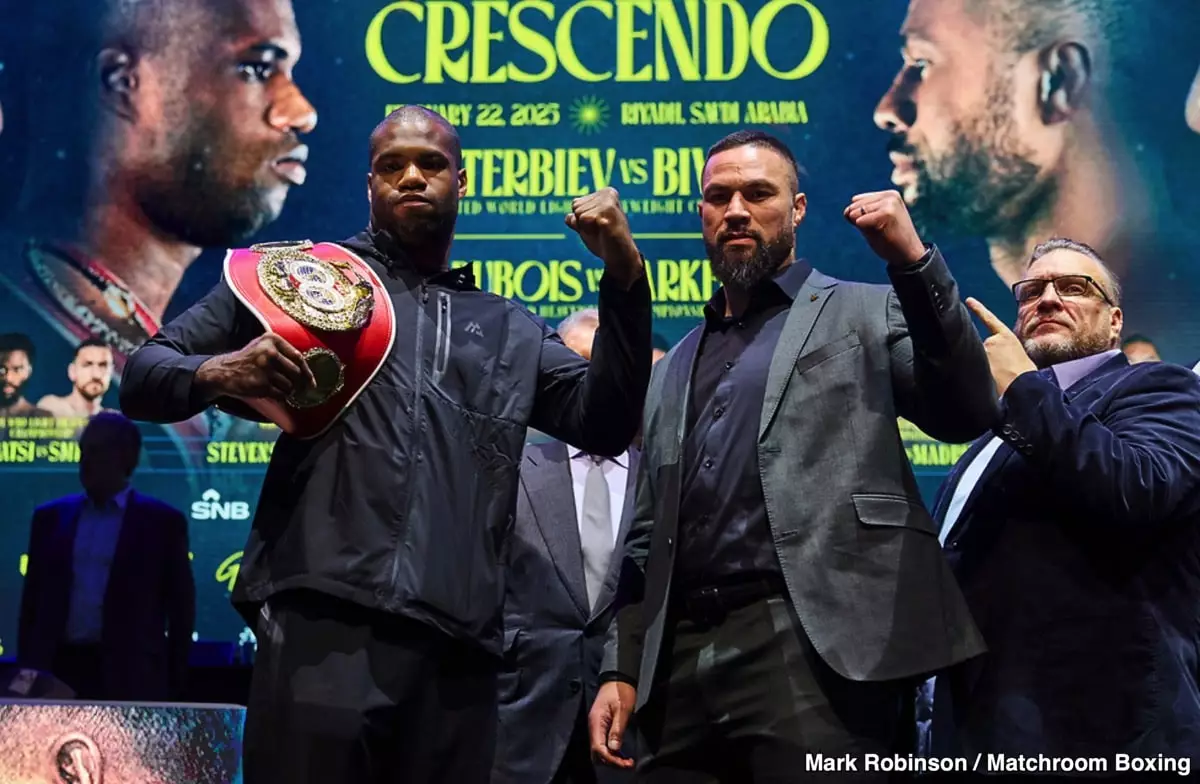Daniel Dubois had been gearing up for what was anticipated to be a thrilling IBF heavyweight title defense against Joseph Parker. However, on short notice, the 27-year-old fighter was forced to withdraw from the match due to illness, creating a ripple effect that altered the fight card in Saudi Arabia. This decision came just two days before the bout, leaving both fans and promoters reeling. Dubois’ withdrawal underlines the unpredictability that accompanies heavyweight boxing, where one decision can shift the fate of multiple fighters.
With Dubois sidelined, the stakes have shifted dramatically for Joseph Parker. This once-in-a-lifetime opportunity to reclaim a world title is now snatched away, as Martin Bakole, a Congolese heavyweight, steps in as his replacement. Bakole, who was enjoying downtime in his homeland of Congo, received the call to replace Dubois with minimal preparation time. He will now embark on a strenuous journey of nearly 3,000 miles to step into the ring, a testament to the unpredictable nature of the boxing world. Despite the rushed lead-up, Bakole stands to gain not only a significant payday but also the chance to make a lasting impression on the heavyweight scene.
The consequences of Dubois’ withdrawal extend beyond the realm of immediate opportunity. Data analysts from CasinoHawks have carefully mapped out the potential financial implications for Dubois. The expenses incurred from an extensive training camp, which typically spans 8-12 weeks, can soar between £200,000 to £400,000. According to estimates, Dubois likely spent around £250,000 to £400,000 preparing for this fight, signifying that a significant portion of this investment is now lost.
A training camp for a world-class heavyweight involves a plethora of expenses—personal trainers, nutritionists, physiotherapy, and other ancillary costs add up quickly. The sunk costs associated with these preparations only amplify the burden of walking away from a fight due to health concerns. Moreover, there are additional losses to consider, such as sponsorship deals, merchandising, and the important pay-per-view revenues that invariably come with headlining fights.
The Path Ahead
For Dubois, the path forward now involves not only recovery but also strategizing his future in the heavyweight division. His decision to withdraw may have been necessary for his health, but it undoubtedly poses challenges for his career trajectory. Fans and analysts will be keeping a close eye on how he plans to navigate this setback.
This incident highlights a broader narrative within professional sports—where ambition meets the harsh reality of physical limitations. Dubois will need to take the time to recover fully, but the financial ramifications of his withdrawal linger, serving as a stark reminder of the costs athletes bear in pursuit of greatness. As the heavyweight division continues to evolve, Dubois will have to reassess his strategies, both inside and outside the ring, to ensure a successful return and capitalize on opportunities when they eventually arise.


Leave a Reply